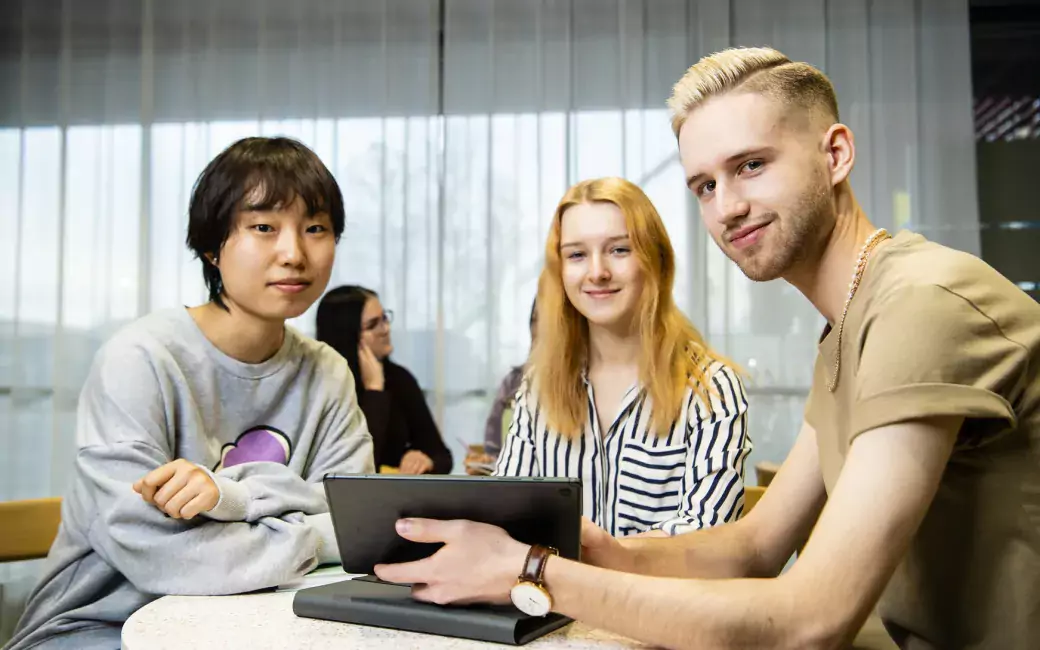Students need more individual guidance, encounters and support for their wellbeing, particularly after the pandemic. Supporting student wellbeing requires long-term funding.

The University of Helsinki has responded to the growing need for support for students by increasing different forms of support and by recruiting six guidance counsellors. Guidance counsellors offer students low-threshold support and the opportunity to discuss study-related issues with a professional.
"Common topics in our counselling sessions include study skills, learning difficulties, possible career changes and other study-related choices, writing a thesis, coping, concentration and motivation," says Sanna Siirilä, Team Leader of the guidance counsellors.
Students have quickly found their way to the guidance counsellors' services. In the autumn term of 2022, there were nearly 600 meetings and other encounters between students and the counsellors. Of these, more than 400 were individual counselling sessions. Other activities include guided study sessions, workshops and groups supporting study skills, for example.
"We have received almost only positive feedback on our individual counselling. Students say that they have been heard, they have found the right direction for their studies and they have received useful tools to support their studying," Siirilä sums up.
SMS contacts reached students in need of support
If studies have been delayed or interrupted, the student's threshold for seeking help may be high and it may be difficult to reach them through general communication. The University decided to test whether a more targeted contact method would work.
"The guidance counsellors sent an SMS to a targeted group of students selected by the degree programmes, offering them an opportunity for a meeting and discussion. The aim was to identify students who may need support to advance their studies and to lower the threshold for seeking help," says Mari Räsänen, Project Manager of the Student guidance and wellbeing development project. The pilot was coordinated by the project.
Twelve degree programmes from seven faculties participated in the pilot. The aim was to identify students who may need support primarily on the basis of the progress of their studies. More than 500 messages were sent out, of which just over 100 were answered. Some of the answers led to a meeting with a guidance counsellor, and some of the students were referred to student advisers, for example.
"Most of the students responded positively to the contact. The idea is that the provision of targeted support could become a part of student guidance," says Räsänen.
Continuity of student wellbeing services and operational development must be secured
The most far-reaching way to increase student wellbeing is to prevent problems. High-quality and easily accessible guidance makes studies smoother and supports wellbeing. It is therefore important to develop and clarify student guidance as a whole.
Guidance is developed and wellbeing services increased at the University of Helsinki in a separate project. The Student guidance and wellbeing development project is implemented with funding from the Ministry of Education and Culture and the University's own strategic funding of wellbeing.
"The services made possible by the funding have met students' needs very well. Without further funding or more permanent investments, some services, such as those provided by guidance counsellors, will have to be partially reduced once the project ends at the end of 2023," says Laura Teinilä, Head of Guidance, Career and Wellbeing Services.
The need for guidance and wellbeing support is by no means diminishing and therefore it should be possible to maintain the currently provided services.
"The continuity of student wellbeing services and operational development must be secured. Investments are required in the development of guidance and wellbeing by continuing the funding for student wellbeing. The work of higher education institutions must be supported by guaranteeing sufficient resources for advice and guidance services, as well as the quality of education and studies," continues Teinilä.






